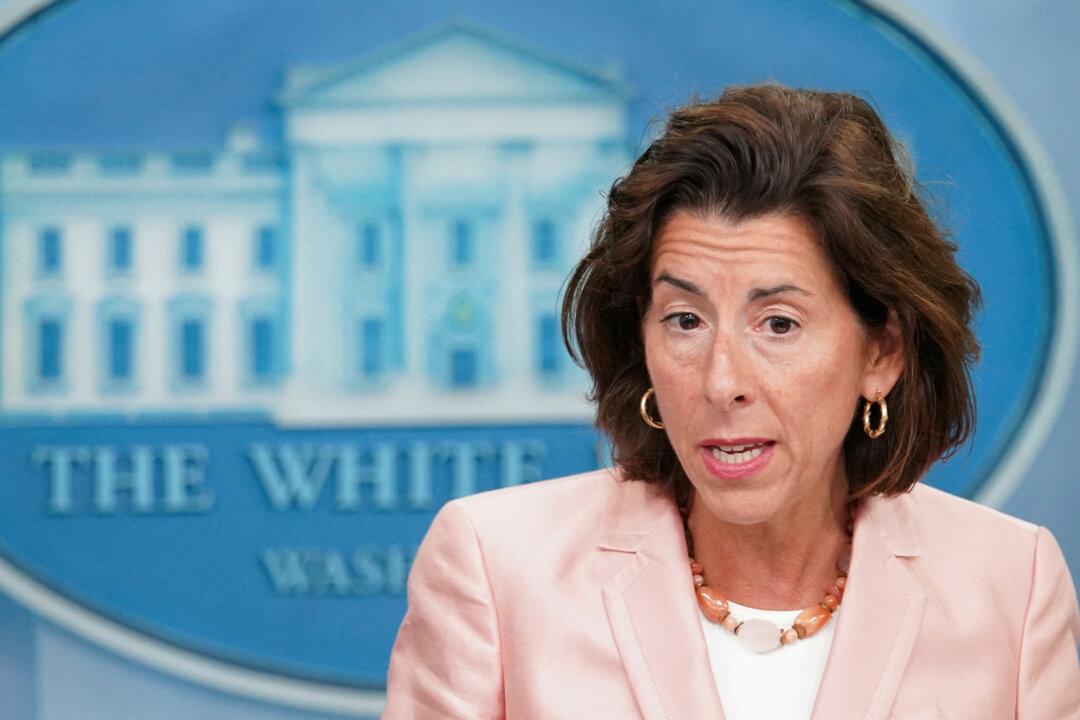House Republicans have pushed for assurances that the Biden administration’s Commerce Department is keeping U.S. interests at the forefront in dealing with technological advancements and the use of semiconductors in national defense technology.
In a Sept. 19 hearing held by the House Committee on Science, Space, and Technology, U.S. Commerce Secretary Gina Raimondo was questioned by lawmakers about the Department of Commerce’s work in implementing provisions related to semiconductors under the CHIPS and Science Act.





